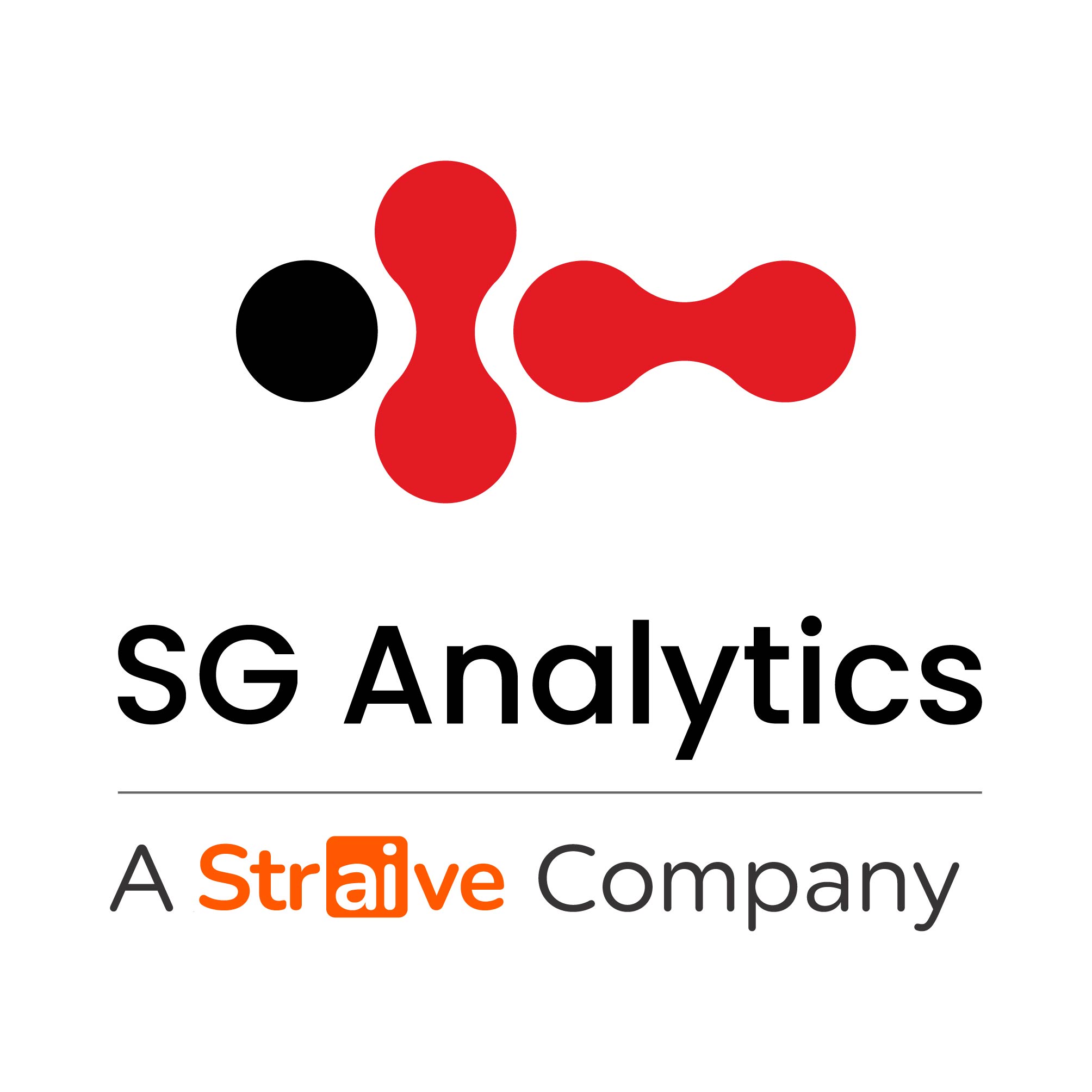- Resources
- Blog
- Industry-Specific Tech Consulting: What Works in BFSI, Retail, and Healthcare
Industry-Specific Tech Consulting: What Works in BFSI, Retail, and Healthcare
BFSI
Contents
October, 2025
The world has witnessed an era of accelerated digital disruptions. These disruptions have forced organizations to stop using generic IT strategies and figure out new means to adopt and apply novel technologies. Therefore, specialists with unique skillsets are in demand. Today’s businesses want guidance to understand the constraints, tech terminologies, regional regulations, and hard-to-grasp opportunities of their specific verticals.
Industry-specific tech consulting provides corporations with domain-appropriate guidance on how to leverage new software ecosystems and strategies. That also involves on-ground implementation support. When a tech consultant customizes analytics, AI, and similar technologies to serve a target industry, wastage of resources and time is avoidable from day one.
To say goodbye to one-size-fits-all designs, specialist consulting bridges gaps between technology and business, enabling firms to adopt cloud, decision intelligence, and data activation. For corporate audiences, this blog explores why industry-specific consulting is essential, detailing the unique mandates, challenges, and solutions required in key sectors like BFSI, Retail, and Healthcare.
Importance of Industry-Specific IT Consulting in Today’s Hyper-Digital Business World
In the hyper-digital context, businesses across sectors seek modernization strategies. Although all companies intend to scale automation, their respective industries necessitate unique ways to stay secure and keep scaling without sudden downtimes. According to the Global View Research, the global digital transformation market reached USD 1,070 billion in 2024. Besides, this growth will be rapid throughout the remaining decade.
That trend overlaps with other changes where generic technology consulting is losing demand. Consequently, industry-specific technology consulting services that help overcome particular compliance challenges have no shortage of clients. This type of IT consulting offers deep domain insight to accelerate adoption and reduce costly mistakes that generalists will inevitably make.
Moreover, vertical-focused tech consulting helps align strategic technology initiatives with the latest industry benchmarks. For instance, a financial firm must embed risk, audit, and KYC logic in every workflow. However, think of a retail business. The retailer must fuse inventory, point-of-sale, and omnichannel processes via tech upgrades. Similarly, a hospital has distinct priorities from a manufacturing conglomerate. These examples highlight why generalists’ superficial modernization offerings will never compete with the specialists’ true transformation projects.
Read more: The Future of AI in Retail Banking: Trends and Predictions
Why Industry-Specific Tech Consulting Matters
Industry-specific consulting matters because it bridges the significant mismatch between generic technology frameworks and the actual sectoral players’ growth or data processing demands. In most cases, data analytics consulting services will be necessary to gain predictive, unbiased insights, but AI integration capabilities will require other specialists who excel at development and operations (DevOps). That situation will further change when the analysts and DevOps teams serve banks. They cannot duplicate their models for other clients in construction, energy, or entertainment sectors without adequate customization.
Tech Consulting for BFSI: Driving Trust, Speed, and Compliance
In the banking, financial services, and insurance (BFSI) sector, the imperatives of trust, speed, and regulatory compliance are always present. Banks want to protect depositors from fraud and lend money to eligible buyers. Similarly, financial services require technology to improve risk-reward insights concerning distinct customer profiles and their portfolios. Insurance companies aspire to reach more individuals and avoid wrongful claim rejections.
From know-your-customer (KYC) to anti-money laundering (AML) compliance, bankers, advisors, insurance agents, and auditors expect AI-driven analytics solutions for the BFSI industry to make their work less arduous. Tech consulting will be necessary to implement those solutions while reducing vulnerabilities to cybercriminal attacks. Whether a BFSI firm wants real-time settlements or accurate tracking for foreign remittance transactions, adequate IT infrastructure backed by specialists is vital.
Automating creditworthiness and creating valuation reports becomes seamless when AI and machine learning algorithms support financial professionals. Likewise, in the case of cloud engineering, customer experience, and reputation management, collaborating with experts with a proven track record of handling extensive transformation workload is desirable.
Read more: Artificial Intelligence (AI) is Transforming the Financial Services Industry
Retail Tech Consulting: Winning in the Age of Omnichannel
In retail, the rise of omnichannel implies that physical stores cannot postpone enhancing their online presence. Therefore, seamless integration of online, mobile, store, marketplace, and social touchpoints through product development consulting is gaining traction worldwide. Today, retailers can tap into virtual environments for the AI-led Iterative testing of products, distribution strategies, and marketing assets without committing real-world resources from the get-go.
Another case, documentation and database standardization across multiple retail outlets, also requires specialists. Generalist consultants unfamiliar with the retail business will be less effective in such tasks. Additionally, new technologies, involving the Internet of Things (IoT) and edge computing, can reduce the need for human intervention for store supervision and inventory monitoring only if their implementation is flawless. Such tech integrations are possible through mature, retail industry-specific tech consulting teams.
Healthcare IT Consulting: Balancing Innovation and Regulation
The healthcare sector wants to innovate, but it must be cautious, as ethical and legal requirements in this industry have a greater impact on tech adoption. For example, almost every nation has dedicated rules and frameworks regarding the responsible use of clinical records. These are mandates binding on all healthcare organizations. So, they govern tech solutions for the healthcare industry that deliver insights into diagnostics and treatment regimens.
Similarly, academic research activities involving sensitive databases on patients or their family trees must comply with prevailing norms. From pharmaceutical companies to medical equipment vendors, every stakeholder seeks dependable tech support partners to help modernize healthcare. Tech consulting in this sector primarily enables real-time report distribution and recovery insights. That is why all nurses, doctors, pharmacists, patients, and family members can have actual data views on recovery progress.
Telemedicine progressing web apps (PWAs) that now dominate most sub-sectors in the healthcare industry are also the result of consistent integration of cloud engineering services. The cloud helps turn on-premise clinical records into electronic health records (EHRs) that are accessible to authorized teams. The doctors or nurses do not need to buy the most expensive hardware to study many patients’ profiles.
Choosing the Right Tech Consulting Partner
Selecting the optimal tech consulting partner allows for secure platform integration and helps share the data processing liabilities due to medical PIIs. As a result, it is a strategic decision impacting each healthcare company’s reputation for years to come. The following steps will assist in selecting the best industry-specific tech consulting offerings.
Read more: Top 10 Technology Consulting Firms in the USA – 2025
Step 1 – Brainstorming Outline Expectations for Tech Adoption
Regional clinics, national hospitals, and global pharmaceutical brands have unique data needs. They cannot reuse standard tools or workflows, especially for rare diseases. Similarly, a bank and a non-banking financial company differ in their compliance needs. In retail, a local mall will not share the same objectives as a global franchising giant.
Given these illustrations, it must be clear that more outcome-oriented DevOps solutions and technology platforms are essential. The organization must specify its needs and consider its target markets or compliance and reporting obligations before deciding on selection criteria.
Step 2 – Exploring and Vetting Available Tech Vendors or Consulting Firms
Technology firms that combine deep domain knowledge, robust craftsmanship, and proven case studies in the target industry are more desirable. However, each firm will have a fixed or customizable set of products and services.
Self-service tech platforms will burden in-house employees with additional skill development and manual effort. However, small clinics stand to gain from self-service tech tools. That is also true for the BFSI and retail players.
In contrast, the managed tech assistance approach for data-driven technology solutions allows bigger players in each industry to share a greater amount of workload with independent firms. Therefore, a clear division of labor and faster access to experienced technology specialists are ensured. Companies must also recheck each tech consultant’s background to confirm whether the emailed brochures are legitimate or misleading. Doing so helps avoid wasting funds on hiring unqualified tech support providers.
Step 3 – Contacting, Strategizing, and Coordinating with the Chosen Tech Consulting Team
After the initial contact, each BFSI, retail, or healthcare organization must designate a suitable number of coordinators. These coordinators will interact with external experts to maximize goal-process alignment. When a strategy for tech upgrades, such as cloud migration or AI integration, gets approval, each coordinator must deliver related reports to higher authorities at regular intervals.
For instance, implementing retail banking analytics solutions versus helping investment bankers make mergers and acquisitions (M&A) deals a success has little to no overlapping areas. If the in-house coordinators do not spot deviations from core expectations early on, remedying the situation will be more difficult based on already achieved progress. Therefore, effective coordination is the key to preventing unexpected surprises during digital transformation or project-specific tech transitions.
Conclusion
Industry-specific tech consulting facilitates digital success irrespective of intense competitive threats or regulatory shocks amid global supply issues. Across BFSI, retail, and healthcare, the complexity and regulations demand tailored strategies. Therefore, generic solutions seldom suffice.
- In BFSI, trust, speed, and compliance must be central to every solution.
- In retail, seamless omnichannel engagement and real-time analytics will affect how leaders and investors define, track, and improve performance.
- In healthcare, innovation must thrive without negatively impacting privacy compliance and medical data ethics. Failure to do so will attract more stringent regulatory oversight.
However, partnering with the right consultant will unlock better compliance, qualitative insights, automation, and innovation.
That is Where SGA Enters the Big Picture
SG Analytics (SGA) is among the top AI, data, and tech consulting partners qualified to give your enterprise both resilience and agility to reach new milestones in the respective industry. With a robust circle of experts, SGA will offer excellent alignment between your organizational goals, leadership vision, stakeholder expectations, and regulatory compliance requirements.SGA’s clients from BFSI, healthcare, capital markets, and manufacturing spaces share positive feedback on our industry-specific tech consulting capabilities. Each team also comprises specialists who will collaborate closely with your team to find actionable insights and ensure AI readiness. Contact us to know how SG Analytics will equip your enterprise with the latest technologies for true competitiveness.
Related Tags
BFSI Healthcare Retail Technology ConsultingAuthor

SGA Knowledge Team
Contents